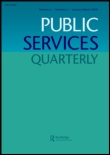I’ve been asked to speak later today on a panel about ebooks in public libraries. Thanks to the Orange County Public Library in Hillsborough for the opportunity! While my day-to-day work is in an academic library, not public, I still try and keep current on the issues faced in our sibling institutions. If we learned nothing else from a recent ebook survey on campus, it’s that our students bring their perceptions of popular-fiction ebooks and apply them equally to academic ebooks.
I’ve been asked if my talk would be recorded or streamed, and I don’t think it will be. But here’s my slides:
I admit many of them don’t make much sense without my accompanying narration. So here’s a summary:
-Popular Fiction publishers love the word ‘Friction’ when applied to ebooks. They’re terrified that if it becomes too easy to get an ebook from a library, customers won’t have any motivation to spend money to actually buy ebooks individually anymore. So they want to introduce friction into the process. I can understand this fear to a point. But major publishers’ reactions is so swift and violent that they don’t seem willing to even experiment and see if their fears are justified. They’re shutting libraries out without a second thought. There’s also other arguments like the idea that libraries create lifelong readers, who turn into publishsers’ best customers. But others have made that argument much more coherently than I can.
-Why are libraries different? Why can’t we just buy a Kindle book like anyone else and then lend it out, the same way we do with print copies?
For one thing, when someone buys an ebook they’re not purchasing the book itself. We’re purchasing a license to use that title for personal use only. The terms of Amazon’s license, for example, specifically note that “…you may not sell, rent, lease, distribute, broadcast, sublicense, or otherwise assign any rights to the Digital Content or any portion of it to any third party.” So, no library lending is allowed. Barnes & Noble and other ebook vendors all have similar language in their licenses.
Even if we could negotiate a better license for library use, we’re still limited by Digital Rights Management in the books. DRM is programming which restricts each purchased ebook title to use on the original purchaser’s device. I could email you a Kindle book I bought, but you couldn’t open it on your own device. Some publishers like TOR are toying with DRM-free ebooks, but their licenses still prohibit library-style lending.
-What’s left for libraries? We have to rely on vendors like Overdrive and 3M. These are companies who act as middlemen; they negotiate with publishers for a license which allows lending, then sell a license to the books (laden with DRM) to libraries. But even that isn’t simple. Let’s look at six of the major publishers and how they sell to libraries through middlemen:
- Penguin used to sell ebooks to libraries, but stopped in February. If a library previously bought an ebook from them, they can keep lending it. But Penguin disabled the option which allows a Kindle to directly download the title. They introduced the ‘friction’ of requiring a user to download the book and move it to their Kindle with a USB cable.
- HarperCollins sells ebooks to libraries, but limits them to 26 checkouts. After that milestone is hit, the ebook evaporates and must be re-purchased. I think this is crazy. HarperCollins argues that no print book lasts forever, so why should a library be able to lend an ebook in perpetuity? This is true, but most print titles last much much longer than 26 checkouts. A popular HarperCollins ebook will expire in just one year.
- Random House sells ebooks to libraries, but at significantly higher prices than individual users pay. Titles average a 35% increase in price, and some go as high as 300%.
- Hachette, Simon & Schuster, and MacMillan won’t sell ebooks to libraries at all. This is why you won’t ever find Walter Isaacson’s book on Steve Jobs in ebook form in a library, among many other titles.
Think this is wrong? The San Rafael Public Library has a great webpage with contact info for all the publishers mentioned here. Let them know how you feel.
Other restrictions further impact how easy it is for libraries to lend ebooks. When an ebook is purchased from Overdrive, it won’t appear in the library’s catalog. Borrowers must know to go to a whole separate catalog to browse ebooks. Libraries also can’t re-sell ebooks, a fact which could impact fundraising efforts down the road. Overdrive and other library ebook vendors also limit checkouts to a two-week period with no renewals. That simply isn’t long enough to read many ebooks, such as the 1000+ page sequels to A Game of Thrones. Alternatively, if you finish a short ebook quickly there’s no way to return it early. The next person in line has to wait for those two weeks to be up before they can get the ebook. More friction.
So that’s the state of things. I don’t claim to know what the solution is, or where we go from here. Some libraries boycott ebooks under these limitations, and others want to provide any limited service they can. I go back and forth on that debate. But at the very least I think library users should be informed about the issues. I think public libraries of 20 years from now will be almost unrecognizable from today’s branches in a number of ways. Ebooks represent only one of those changes, but it’s a big one.

![xEoOY[1]](http://www.hiddenpeanuts.com/wp-content/uploads/2012/09/xEoOY1-300x274.png)

![Buy-Kindle-Fire-Color-Best-Price[1]](http://www.hiddenpeanuts.com/wp-content/uploads/2011/11/Buy-Kindle-Fire-Color-Best-Price1-300x300.jpg)

 Last Friday I received an email from Amazon with a fairly innocuous subject line: “New Kindle Personal Documents Features”.
Last Friday I received an email from Amazon with a fairly innocuous subject line: “New Kindle Personal Documents Features”.